Businesses large and small are driven by the desire to succeed, achieve their goals, and continuously improve. Enter performance management, a modern, dynamic practice that plays a pivotal role in helping organizations harness the full potential of their most valuable asset — their people.
What's performance management, exactly? We've covered this before, but the short and sweet recap of performance management is that it is the art of optimizing employee performance to achieve strategic goals. It's the mechanism through which organizations align individual efforts with overarching objectives, evaluate progress, provide frequent feedback, and foster continuous growth.
But as the world of work undergoes seismic shifts, performance management is also evolving to keep pace with these changes... So let's break it down.
Exclusive online summit
·
May 23 2024
Moments that matter: how to seed great work
In this article, you'll find...
The evolution of performance management
In the not-so-distant past, performance management was a structured (and somewhat rigid) process characterized by annual performance reviews and fixed objectives. Managers follow a predetermined roadmap with little room for detours. Maybe this sounds familiar. This traditional performance management approach served its purpose in simpler times, but the demands of today's work environment call for something more agile, responsive, and adaptable.
Performance management systems today
Enter performance management 2.0, or modern performance management, as we like to call it. A new era in the evolution of this essential business practice. This fresher, more realistic approach recognizes that work isn't confined to the four walls of an office. In 2023, teams are often distributed across the globe and the very nature of work is shifting towards greater flexibility and autonomy.
In this new paradigm, modern performance management has become more of a continuous performance management process, driven by ongoing feedback, agile goal-setting, and real-time performance tracking. It places employee development at the heart, and the rigid annual performance review has given way to regular check-ins and constructive conversations.
Read Mastering the performance management cycle: A guide for HR leaders for a deeper dive into this continuous loop model where performance feedback works both ways.
The modern workplace is dynamic, and so must its performance management systems. The future of performance management is looking bright — and it's a business's responsibility to join this next-gen without a hitch.
Predicting the future of performance management and embracing the unknown
As businesses navigate the ever-changing currents of the global marketplace, they must also prepare for the uncertainties of the future. Granted, predicting the exact shape of things to come is challenging. That said, we can identify several exciting trends that will impact the future of performance management.
One trend that stands out is the growing reality of remote work. The pandemic only accelerated a shift that was already underway, making remote and hybrid work models the new norm. This new workplace reality has managers rethinking performance management — how performance ratings are measured, feedback is given and goals are set. How can this be done digitally yet remain organic?
Another undeniable force is technology. We're talking Artificial Intelligence (AI), data analytics, and automation — although the list doesn't stop there. The evolution of these technologies holds the promise of more accurate performance assessments, deeper insights, and data-driven decision-making. They also raise questions about using these tools responsibly and ethically in performance management.
Lastly — and maybe most importantly — there's a growing emphasis on an employee-centric approach. The future of performance management is not set to be a one-size-fits-all system but a personalized experience tailored to individual employees. Employee expectations are shifting and they will expect more say in setting their goals, receiving better feedback during performance reviews, and helping craft their professional development paths.
And so, with the shifts in performance management comes shifts in performance management systems.
Key trends in performance management systems
Several key trends are shaping the way organizations approach employee performance and their current performance management system. These trends are not just buzzwords — they represent the future of how businesses will measure, motivate, and manage their talent.
At Officevibe, we're all about staying ahead of the curve. So let's dive into some of the most exciting performance management trends we think will revolutionize your own performance management system!
Data-driven performance management with real-time tracking
Gone are the days of once-a-year employee performance reviews that rely on hazy memories and subjective opinions that offer no clear path forward. The future of performance management is all about real-time data.
Imagine having access to a dashboard that provides live insights into your team's performance. This trend is all about leveraging technology to collect, analyze, and act on more objective performance data.
Numbers don't lie. Real-time tracking enables managers to identify trends, spot potential issues right away, and celebrate wins as they happen. It empowers employees with immediate feedback, allowing them to adjust their efforts in real time. This trend not only enhances the accuracy of performance assessments but also fosters a culture of continuous improvement and collaboration.
Different criteria for different decisions
Performance management isn't just about appraisals and promotions — it's also about compensation. In the future, businesses will adopt a more nuanced approach, using different criteria for different decisions. While the traditional approach assessed an employee's overall performance for all decisions, the evolving trend recognizes that one size doesn't fit all.
For compensation decisions, organizations will focus on specific metrics like sales targets achieved, projects completed, or goals met. Technology will enable managers to also consider more elusive performance ratings like reactivity and collaboration. This tailored approach ensures that compensation is directly linked to individual contributions and achievements, rather than based solely on a job title, motivating employees to excel in their roles no matter where they are in their career development.
Integrating technology in the performance appraisal process
Technology isn't just a part of the performance management landscape — it's the driving force behind its evolution. From AI-driven analytics to performance management software, technology is also changing how performance appraisals are conducted and received.
With the integration of technology, organizations can now better streamline the appraisal process, making it more efficient, data-driven, and interactive. It allows for the automation of routine tasks, freeing up time for meaningful discussions between managers and employees.
Technology also enables the creation of customized performance dashboards, making it easier to track progress, manage employee performance, and identify areas for improvement that both managers and employees can have access to.
Remember how we mentioned that an employee-centric mindset will soon dominate performance management? Tools and technology will cater to this too.
Adaptation strategies: Preparing for what's next
Adaptability is the name of the game. And as a manager, predicting the future of performance management means knowing how and where to adapt.
Here are some strategies to future-proof your performance management practices:
- Embrace technology: Incorporate modern tools and software into your performance management toolkit. Utilize AI-driven analytics to gain deeper insights into employee performance and choose platforms that offer real-time feedback capabilities.
- Promote a culture of continuous feedback: Create an environment where feedback flows freely and is part of your organization's DNA. Encourage open and constructive discussions about performance to foster growth, and make sure the tools you use to support that.
- Set SMART goals: Ensure your goals are Specific, Measurable, Achievable, Relevant, and Time-bound. This framework provides clarity and a roadmap for employees, helping them understand expectations and deadlines.
- Flexibility in processes: Build flexibility into your performance management processes. Recognize that goals may need to shift due to changing circumstances, and create processes that allow for such adaptability.
The human element in the future of performance management
It's important to remember that even with all the technological advancements and data-driven approaches, the human element remains at the core.
Managers need to remember the power of human connection. Amidst algorithms and dashboards, there's a need for genuine human interactions that go beyond the confines of quarterly check-ins or annual reviews. This is why team performance is just as important to consider as individual performance. We're stronger when we work together.
When technology and humans work hand-in-hand
Forward-thinking organizations are acknowledging that high-tech should go hand-in-hand with high-touch. This means that while we embrace AI-driven analytics and real-time tracking, we also recognize the significance of regular, meaningful conversations between managers and employees.
These interactions can't be reduced to mere data points. Objective performance data brings incredible value, but good decisions also involve listening, empathy, and understanding. They're about acknowledging individual strengths, addressing concerns, and aligning personal growth with organizational objectives.
Don't underestimate the power of a simple face-to-face conversation, whether it's in the physical office or during a virtual meeting. Although it can enhance it, the ability to motivate, inspire, and mentor your team members remains a timeless skill that no technology can fully replace.
While technology will continue to evolve, the human touch in performance management will never go out of style. It's the blend of the two that will help your organization navigate the future landscape most effectively.
Mastering the employee performance process
In this era of evolving performance management and the dynamic world of work, one key element stands out as crucial for excellence: equipping yourself with the right tools. These tools are what keep the most successful companies well-informed, agile, and ahead of the curve in performance management.
The right tools: Features for performance management mastery
In today's tech-savvy landscape, there's no shortage of software and applications designed to assist managers. However, choosing the right ones can be an overwhelming process. Managers should seek qualities that align with the performance management trends we've discussed above. Look for features like continuous feedback and agile goal-setting, along with AI-driven analytics and comprehensive dashboards for tracking team performance.
Read about some of Officevibe's newly announced agile features dedicated to performance management!
As we peer into the future, one thing remains evident: the performance management process will continue to be a cornerstone of organizational success. While the methods for optimizing employee performance may evolve to adapt to the changing nature of work, the essential need to be equipped with the right technology in the face of change will persist.
Embrace the future and lead your organization toward performance excellence. You've got this!
Equip HR and managers with tools to engage, recognize, and drive performance.




